The Ayahuasca Chronicles, #2 -- Journey Essentials
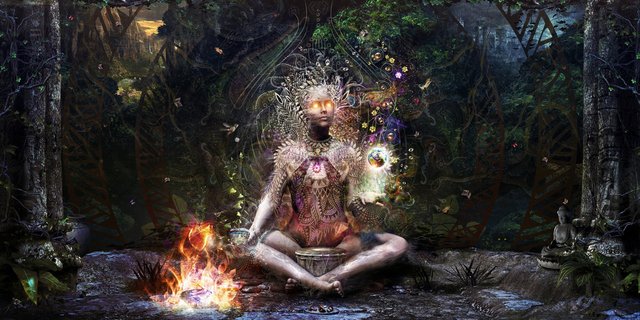
Ayahuasca is an Amazonian brew that has been used for thousands of years as an incredibly effective spiritual, emotional and subtle-body healing agent. Many would even argue its effectiveness as a physical-body healing modality. Testimonies abound of Mother Aya’s adept healing of past and present trauma, of purifying the physical and subtle energetic bodies, of dissolving illusions, teaching on both the conscious and subconscious levels, and providing revolutionary experiences of Divine Truth. In short (and from a Buddhist point of view), Ayahuasca -- as administered in a guided, shamanic ceremony -- is a powerfully supportive agent in helping one dissolve all manner of affliction and suffering by removing the veil of ignorance that is a direct result of the ego-generated Self.
However, working with Ayahuasca is not a universal tool for everyone, and it is certainly not a silver bullet, cure-all for every problem. Ayahuasca will not "fix" anything without dedicated work on the party of the participant; she will only reveal potentials and possibilities. As well, one should be mindful that Ayahuasca is contraindicated with many pharmaceuticals, and especially so with all manner of antidepressants.
Note: clue #1 that you’re working with an astute and conscientious shaman -- the said healer will be adamant in screening for such contraindicated substances. As well as for Ayahuasca "cowboyism". That is, people simply looking for the next psychedelic thrill.
Less widely known, though, is the importance of emotional and psychological preparation before entering into work with Ayahuasca. Even less so is conversation on the potential cliffs, blocks and valleys one may encounter even after completing hundreds of ceremonies.
Though there are many strategies for continued growth when doing this work, they all can be reduced to entering each ceremony and integration period with courage, trust, and extreme humility.
Courage
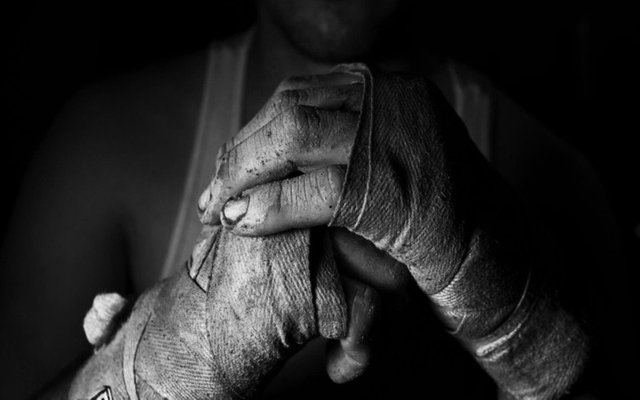
Let’s face it: the act of merely showing up to an Ayahuasca retreat having little idea what is in store for you takes extreme courage. A fact that doesn’t change whether it’s one's first or 100th dance with the brew.
Because the fact of the matter is that every ceremony is a completely and utterly unique experience. What levels the playing field between novice and veteran is the fact that no one knows going in what the experience will bring. The only defining difference is how one will handle the journey. Will it be handled with grace, willing acceptance and unconditional love? Or will there be refusal, denial and resistance?
To be raw and ruthlessly honest with yourself, as well as open and completely vulnerable in a group setting takes a type of courage that not all are willing to muster. All, though, are capable of such courage. It is woven into the human spirit.
That everyone is capable is not to minimize the fact that to face past traumas and engage previously repressed emotions takes extreme courage. To disavow outgrown (but comfortable) coping mechanisms and solidly held belief systems with no idea of what might replace them takes courage. To step blindly into an intensive night of physical, energetic, emotional, spiritual and mental purging, only to return for another night of the same takes courage. To potentially experience the dissolution of everything you once thought to be true takes courage. To commit to this type of work knowing that you are going to be pushed well beyond your comfort zone takes courage of the highest order.
But the unifying mark of all truly successful people is that they run toward the uncomfortable, rather than away from it. That said, the only way to expand your comfort (and acceptance) zone is to be continually pushed beyond your current boundaries. And in doing so, you become adept at seeing all phenomena with a newly heightened sense of relativity. Consequently, you relate to each new event with a deeper spiritual maturity. One might call this the “pumping iron” of spiritual fitness.
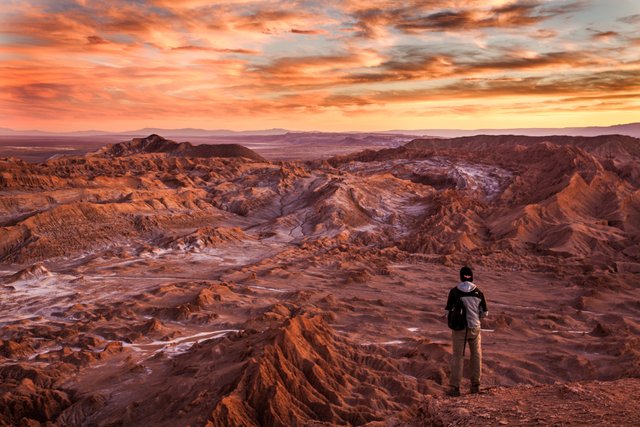
No doubt about it -- working with Mother Aya can be an uncomfortable, emotionally demanding, and downright scary experience. But when these difficult situations are met with a courageous and investigative attitude, they can blossom into some of the most lasting and meaningful of educational experiences. Mining gold from these difficult encounters, though, requires an intense courage on the part of the journeyman, as opposed to a reluctance or resistance to entering into the fray of pain and discomfort.
You’ve no doubt heard that fear and opposition are the way forward, and this is no more true than in working with Ayahuasca. The most intensely fearful encounters, handled with courage, can uncover and release the deepest sources of our suffering. One might discover (as I have) that all suffering stems from a fundamental attachment to an illusory belief in the permanence of things; a steely resistance to the transient nature of form, and indeed, the transient nature of our very lives. One might also discover that suffering can be enticing. Addictive, even. This being due to the subtle underlying egoic payoff attached to identifying as a victim. I realize this seems unimaginable at first blush. However, if identifying as a victim is a viable option, the ego can, deftly, and without impunity, wield that identification to maintain permanence.
We tend to hold onto these resistance strategies out of ignorance, fear of change (or of the unknown) and out of the the belief that these mechanisms are somehow improving our lives. To let let go of these attachments and drift into the wide unknown takes courage. But we can look to those who have come before and who have not only survived, but were emancipated from their fears, as sources of light. That we can trust in those who have come before, and therefore trust in this Universal process smooths the path.
And speaking of Trust...
Suppose that you decide to travel through a foreign land. You believe that with the right map and navigational tools you’ll safely traverse the unknown territory. Eventually, though, you lose all focus and become distracted along the way. Disorientation sets in. Panic ensues as you begin to retrace your steps, explore different roads, and eventually come to realize that you are, in fact, completely lost.
Fuck.
At this point the reasonable person would squelch the ego, ask a local for directions, and trust in the native’s experiential knowledge of the terrain. To ask for directions and then ignore guidance from the one who lives there would be considered lunacy.
Many come to Ayahuasca because they are feeling lost, spiritually uninspired or adrift, or because they are deeply broken in some shape or form. They may have tried other medicinal / pharmacological intervention with little to no result. Maybe they’ve self-medicated themselves into an addictive state. One way or the other, though, they are all come to Aya as seekers.
Having heard stories of the gravity of this work (as Zach did), many wisely seek out a shaman to help guide them through the experience. From thousands of years’ worth of experience, it is clear that Mother Ayahuasca always has the seeker’s best interest in mind. The seeker will always be given what they need to evolve, even if that does not align with what their ego wants. The sooner one can accept this truth, trusting in the sacrament’s intrinsic wisdom, the easier the entire unfolding of Truth becomes.
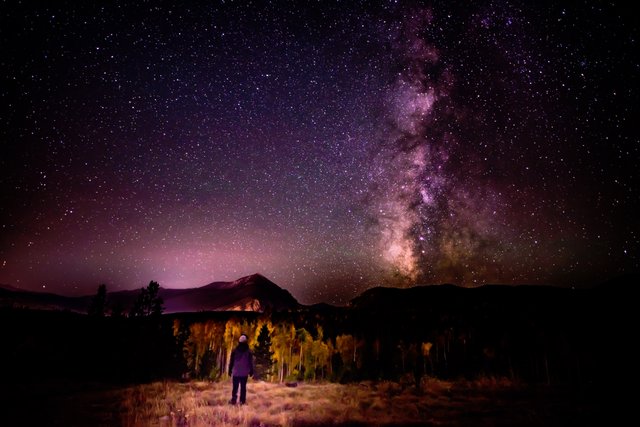
That said, it is a fact that not all shamans have the purest of intentions. For this reason, it is crucial that you are high selective and discriminating with the shamans you choose to work with. The best way to go about this is to get a direct referral from a trusted friend, read testimonials, research the shaman’s organization, and if possible, look into the lifestyle, philosophy, and goals of the shaman.
In short, you must perform your own due diligence research. If you do your part in this process, Mother Aya will always see that you are paired with the right shaman.
It is paramount to also find out the degree of experience the shaman has. This should not be crudely measured in the amount of years they may claim to have practiced medicine work. For example one might say they have been working with Ayahuasca for decades, but have truly only participated in a few ceremonies each year. It is better to investigate how much of each year the person has committed to this work, who they have studied with, how many plant dietas they have done, the quality of their dietas, what spirits they actively work with, how often they orchestrate ceremonies, what other healing techniques they have studied besides plant medicine, etc. All of this is of paramount importance.
This type of work hinges on letting go. If you can not feel safe in relaxing and releasing, and are unwilling to trust in the guidance of your shaman and in the sacrament of choice, the amount of healing that can take place is significantly diminished.
Humility
The classic Zen story of Nan-in and the professor is an example of the necessity of humility.
A professor of Buddhist studies went to meet with the Zen master Nan-in. After bowing, the professor asked the master to teach him about Zen, but quickly started rambling on about his own extensive studies while the master patiently listened. Nan-in suggested they continue talking over some tea and poured himself a cup. He then started pouring tea into the professor’s cup and continued to pour, even after the cup began to overflow. Eventually the professor cried out, “Stop, you are spilling tea everywhere! Can’t you see the cup is full!” The Zen master smiled and said, “You are like this cup, so full that nothing more can be added. Come back when your mind is empty.”
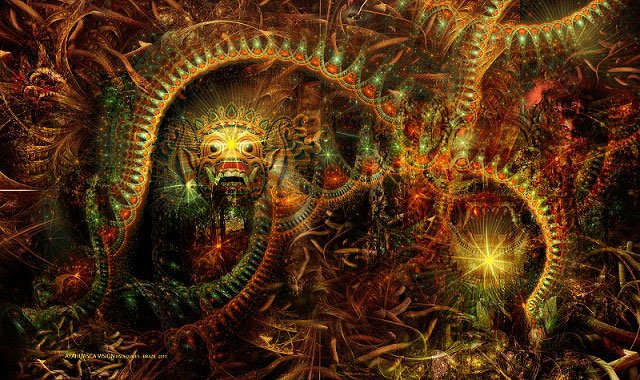
Learning is not debate. There is no “winner” and no “loser”; a notion difficult for the Western mind to accept. To learn anything, you have to first admit your ignorance. If you are still experiencing suffering (as we all are), there is room for improvement! The great spiritual teachers have prescribed a variety of methodologies aimed at liberating oneself from this suffering. But before embarking on any of these paths, one first has to admit that they are in fact suffering and are in need of change.
Arrogance has no place in the search for truth.
When we approach the search for truth out of pure ignorance, we can then begin weeding out the personal patterns that are at the root of suffering, and eventually come to a deep understanding of the true nature of Reality. As every spiritual master has made clear, if you are actively suffering and resisting the present, you have misunderstood Truth. Connecting with the sacrament only yields to spiritual growth when coupled with a heaping dose of humility. This vital quality is a necessity regardless of one’s amount of experience with Ayahuasca or any other plant medicine or practice. Sooner or later the initiate’s personal progress will come to a halt if they lose their sense of humility.
Ayahuasca is but one of the many sacred maps to unconditional love and true peace. But to reach that destination you must have the courage to overcome the many obstacles along the path, a deep trust that the map is accurate, and enough humility to admit that you need guidance and direction in the first place.
Journey well, my friends!
Heal thyself, harden thyself, change the world ~
Keith
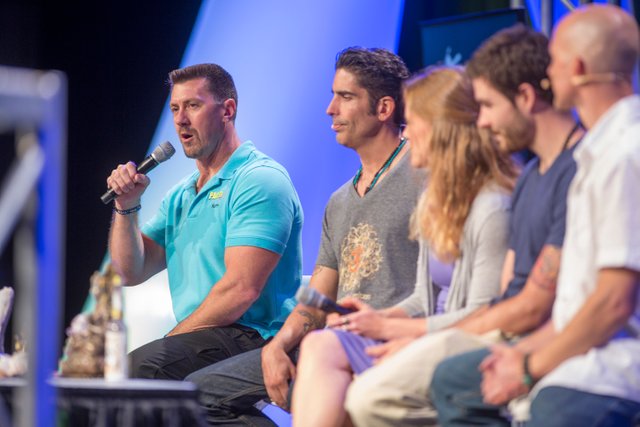
Deepest respect to shaman Scott Latham (2nd from the right, above) for providing the basis of this piece.
Also, please see the first installment of this series: Ayahuasca 101; the Shaman’s Perspective